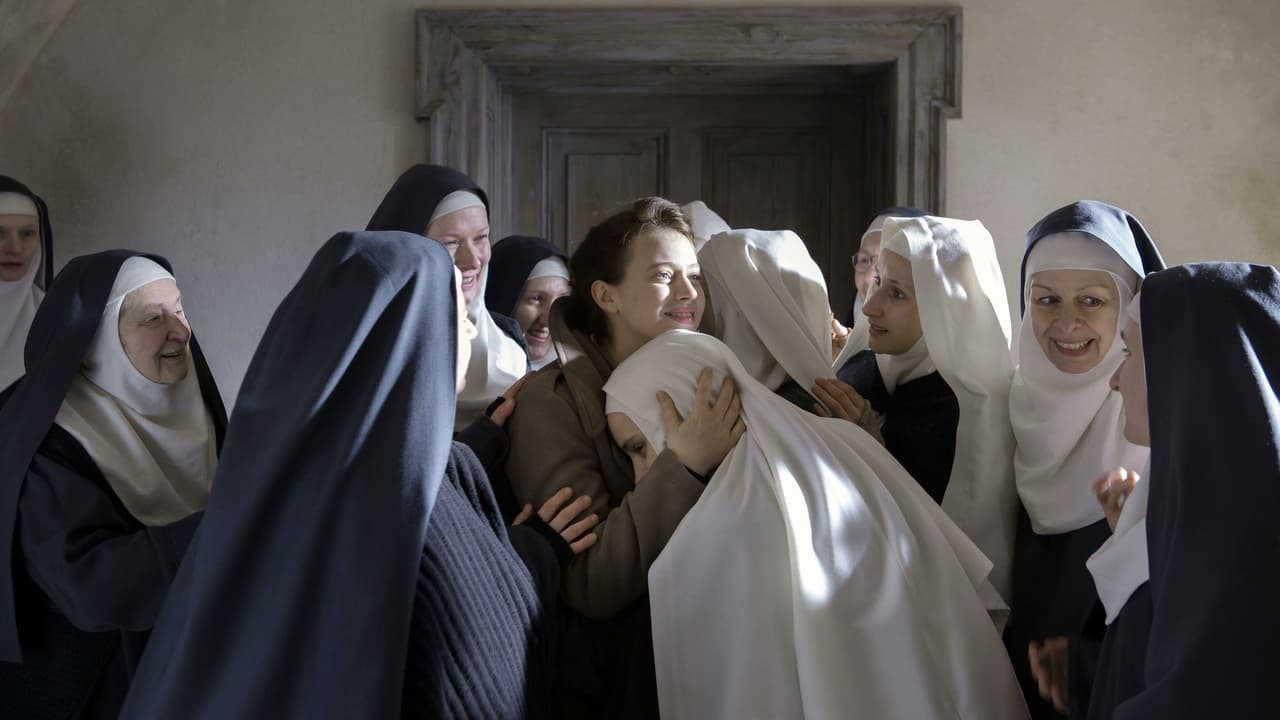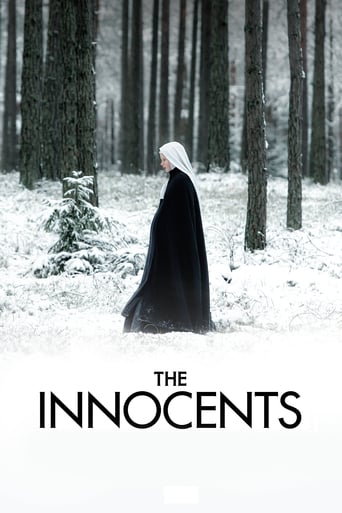

This film is based on true events in Poland. After the end of World War II in 1945, many polish nuns in catholic convent became pregnant one after the other. This revealed that these women were physically abused and raped by Russian army. During that time a communist French nurse,Madeleine Pauliac working for Red Cross came to treat wounded Russian soldiers look after these women. The lady doctor performs a noble task beyond her duty to reduce labour pain, help during them child birth. She secretly visits convent to treat patient nuns, provide medicines,and save many babies. She took risk of her life and from being fired from her job for treating enemy. Nuns had chosen to remain celibate,but become victim of rape and lose virginity. Lead sister in convent tried to keep this secret to avoid their condemnation and dismissal from society. Few babies were sent to their relatives, few were sent to adaptation house. One baby was left abandoned over snow-capped hill to let somebody own it. This movie is excellent art. Visuals, colour schemes are stunning. Costumes of nuns, their paths of celibacy,devotion towards Jesus, sermons recited by them are spiritually blissful. Suffering and outcry of women during childbirth is heartbreaking. Women were looked only as an instrument of sexual gratification, while they were performing exhausting task in cooking, cleaning and other households. This film indirectly raises questions upon inhuman behavior by during war. This film reminded me an Oscar winning film, Ida, based upon nun who chose to devote herself to god.
... View MoreWith seventeen writing and sixteen directing credits on her CV it's fair to say that Anne Fontaine has paid her dues and knows how films are put together; I've seen and enjoyed perhaps a dozen of these but I have no hesitation in saying that The Innocents surpasses anything she has done by a country mile; all I can say is that this is Fontaine's Citizen Kane and in my book that's another way of saying the best there is. It's one of an increasing number of films set in and/or either side of World War Two based on actual incidents, Katyn is another, for example, but it would be wrong to assume that this was sufficient to guarantee success. For that we have to look to the creative term or, to put it another way you can deliver a ton of Carera marble to a sculptor but it's up to the sculptor to fashion it into something outstanding or something mediocre. Fontaine, given her marble and enlisting the aid of three outstanding actresses - Lou de Laage, Agata Buzek and Agata Kulesza - fashioned it into a masterpiece. The plot has been described else where: 1945, Poland. Lou de Laage is working with the French Red Cross. A nun solicits her help, she turns her away. A little later she sees the same nun, on her knees in the snow praying desperately for heavenly intervention. Breaking the rules of her contract she 'borrows' an ambulance and accompanies the nun to the convent where she finds a woman about to give birth. The Abbess, Agata Lulesza, explains that they have taken the girl in out of pity but rejects any help. Another nun, Agata Buzek, speaks French and persuades the Abbess to accept the help of the French doctor. So begins a bonding between the French doctor and the Polish nun. The first revelation is that Russian soldiers visited the convent three times leaving seven nuns pregnant. Later the doctor discovers the Abbess has syphilis. There is, if possible, a final revelation even more horrific than the en masse raping of seven nuns. Shot in colour but muted to resemble black and white, in a bleak Polish winter with virtually no music Fontaine holds the attention effortlessly and has surely coaxed Award winning performances out of the three leads or else there is no justice in the world yet every single performance is A +. The highest praise is not good enough for this film.
... View MoreThis is a movie that doesn't fight the delicate situation at hand and the beliefs that have been instilled, but works with it, allowing for human nature to take its course and lead down a path with a powerful and positive outcome. It is a wonderful movie, that turns the bleak events of the past, the trial and tribulations that had to be endured, only to see light at the end of the tunnel. The performance/acting is excellent, the pace is what you would expect, and keeps you totally focused on the events of the movie. It's sad to see what war does and the entitlements that man feels he should take. A movie, that is sad, with elements that may upset some, but these are true to events and well worth the watch.
... View MoreIn case the 2013 movie Ida did not give you enough of a taste of the bleak Polish landscape post-World War II and the existential difficulties a young novice there may face, The Innocents gives a whole convent of them. The opening credits note the film is based on real events. These were documented by Madeleine Pauliac, a member of the French Resistance and a Red Cross doctor in charge of repatriating French soldiers scattered in camps and hospitals across Poland at the end of the war. Her nephew helped develop the movie, using her notes. French Director Anne Fontaine and a team of writers have brought to life this sensitive story of the aftermath of the country's "liberation" by the Soviet army. In the soldiers' point of view and with their commanders' encouragement, this meant enjoying the spoils of war. As a result, at least seven of the twenty or so Benedictine nuns in this isolated convent are pregnant. "What at first appears to be an austere, holy retreat from surrounding horrors is revealed to be a savagely violated sanctuary awash in fear, trauma and shame," says Stephen Holden in the New York Times. While the Sisters have taken vows to hide their bodies from the view and touch of others, when the babies start coming, life gets complicated. Childbirth is a terrifying physical, emotional, and most especially, spiritual crisis for the young nuns, who feel abandoned by God. Hearing her Sister's plaintive cries, a young novice runs to the nearby village in search of a doctor who is not Polish and not Russian. She finds an aid station staffed by the French Red Cross. Will the young doctor Mathilde (modeled on Pauliac in a stirring and subtle performance by Lou de Laâge) help? Will she be allowed to? What will become of these babies? Keeping the children would bring scandal down on the heads of the nuns, whose situation is precarious, given the post-war privations, the suppression of the Church by Poland's new Communist regime, and popular prejudice against illegitimate babies and unwed mothers, regardless of circumstances. They are sitting ducks. While you might be tempted to think of this movie as a period piece, wars with rape as a tactic continue today, with the young women victims often ostracized from their communities and families. The stern Mother Abbess (Agata Kulesza, also in the cast of Ida) swears Mathilde to secrecy about the births, but is quietly frantic they will be discovered. The Mother Abbess has her own probably fatal post-rape difficulty, but this is inconsequential compared to her fear for the loss of her soul. Acting as intermediary, Sister Maria (Agata Buzek), serves as translator, though the cultural divide remains almost unbridgeable. Says Christy Lemire in Rogerebert.com, Mathilde, the non-believer, is "a voice of reason in a place of sacred mystery." The fine acting in this movie helps it maintain a quiet dignity and lack of sentimentality about this whole ugly business. In French and Polish, with subtitles.
... View More